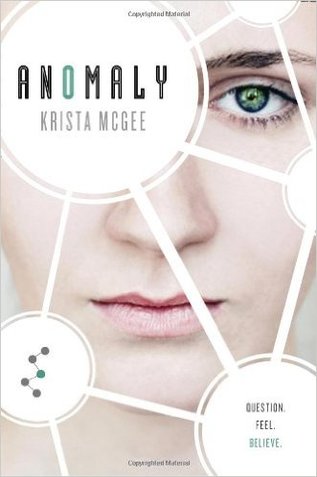 Interview by Brock Eastman Featuring the Anomaly trilogy With everything we read in the news, it’s easy to allow our imaginations to wonder what will happen tomorrow, or even the very near future. I think of my three girls; what will they grow up to experience? What will our world be like for them? Sometimes I become anxious about it, worrying how I will protect them from the unknown dangers of the future. In the Anomaly trilogy, Krista McGee gives us a glimpse into one of those possible futures, one that certainly worries me. And though it’s one I hope doesn’t comes to pass, she reminds us that there is always Someone we can rely on no matter what the future holds. Brock: Krista, you’ve written an exciting series. I was glad that I discovered it after the third book was being released, because I’m not sure I would have been able to wait. Tell me, how did you come up with the idea for the Anomaly trilogy? Krista: In the spring of 2012, I was asked to write a dystopian series by my editors at Thomas Nelson. I have always loved that genre, so my mind began to race with possible story ideas. I knew I wanted the Christian element to play a major role in the plot, so with that in mind, I began brainstorming what my future world would look like. Brock: There are three books in the series, can you tell me a little bit about each one. (Warning Spoilers! Skip to the next question.) Krista: Anomaly introduces a future where the world has been destroyed by nuclear war. Only the 10 Scientists who were preparing an underground community – The State - in the event of a nuclear war survived. These, known as “The Ten,” decided to create a new world by genetically engineering new generations to be without emotions or curiosity, focused solely on completing the tasks they have been designed to complete. Thalli is an Anomaly – she feels deeply and questions everything. Those “malformations” lead to her arrest and only the intervention of childhood friend and Scientist-in-Training, Berk, keeps her from annihilation. As their alliance grows stronger, and Thalli’s use as a test subject increases, Thalli is introduced to John. Because he was visiting the State when the nuclear war occurred, he survived. But he is kept far away from others because he holds to a faith the Scientists believe is both primitive and dangerous. Thalli discovers John has more answers than anyone she has ever known, and her curiosity about the Designer that he serves grows. Thalli faces dangers from every angle, and the annihilation that she avoided becomes a reality. *Spoiler Alert* In Luminary, Thalli has escaped above ground, with the help of Berk, Rhen (Thalli’s best friend), and John. The foursome discover pockets of survivors who are at war with each other, and as Thalli volunteers to help these cities find peace, she is placed in situations even more dangerous than anything she faced in The State. Her faith and her allegiances are tested as she discovers disturbing news about both her past and her future. *More Spoilers* In Revolutionary, Thalli and Alex have been forcibly returned to The State. Determined to ensure his leadership is uncontested, Dr. Loudin commits unspeakable acts. Thalli learns truths that shake her world, and she is placed in a position where she must face Loudin and stop his plans or her friends in the State and in the world above will be destroyed. Once again, she leans on the help of the Designer as she seeks to save everyone she loves. Brock: In three words, what is Revolutionary all about? Krista: Overthrow, Overpower, Overcome (okay, I cheated and used the words from the cover…but they work!) Brock: Had you always planned on a trilogy? Are there more books planned after Revolutionary? Krista: Yes and no. I knew from the start this would be a trilogy. I am working on another book, but it is a new story. The Anomaly trilogy ends with Revolutionary. Brock: I’m disappointed there won’t be another story, but glad to hear you’re working on something else. Did you outline the entire series, or did you write each book as you went and let the characters take control of the story? Krista: I had a basic outline for the series, but that outline changed quite a bit from the brainstorming stage to publishing. Brock: Do you enjoy writing in a Dystopian world? Krista: I love the freedom of creating a whole new world; it is, however, much more challenging than writing contemporary novels. Brock: Me too! It’s fun to imagine and envision where our world might be a decade from now, a century, or even a millennia. Another fun aspect of creating new worlds is creating the characters that live within them. Tell us about the main characters Thalli and Berk? Krista: Thalli changes a great deal from Anomaly through Revolutionary. At first, she sees her curiosity and emotions as aberrations that demonstrate her inferiority. But as she comes to know the Designer, she learns she was created for a purpose and her “anomalies” are actually gifts. Berk is confident in his abilities as a Scientist, but as the story progresses, he is faced with situations beyond his training and control. He struggles to understand and adapt and he, too, needs help from the Designer to fulfill his purposes. Brock: Can you describe their (Thalli and Berk) relationship for us? Krista: If this was a Facebook status, it would read “It’s Complicated.” Having been raised in the same Pod, Thalli and Berk have known each other since birth. Berk was the only one to appreciate Thalli’s differences, and he spent their childhood alternately protecting and provoking her. As teenagers, their feelings mature from friendship to something more. Berk, however, continues to see himself as Thalli’s protector, but Thalli does not appreciate that. They work through their differences only to be faced with more. Ultimately, Thalli has to decide whether or not their relationship can move beyond a childhood friendship. Brock: “It’s Complicated,” I just got funny looks because you made me laugh while I was editing this... Tell us more about the Designer. Krista: The Designer is God. John uses that name to explain Him to Berk and Thalli because the name “God” means nothing to them. The concept of a Designer, though, is understandable. So John speaks about God in a way they would understand – similar to the way missionaries to unreached people groups speak to those who have never heard of the Savior. Brock: I’ve taken a similar tact in one of my series with Creator, Rescuer, and Helper. Is it difficult to be accurate to Biblical perspective/facts when writing fiction fantasy? I know I’ve sometimes called on pastors or friends for help. Krista: I believe the Truths of scripture can permeate any literary genre. Though I doubt God would permit a world-wide nuclear war on the scale presented in Anomaly, there is biblical precedence for a new beginning (Noah) and the maintaining of a remnant in a world that tries to eradicate belief in God (the Isrealites). My husband is a theologian, so I “fact-checked” with him before beginning Anomaly to make sure the literary license I took wasn’t too far-fetched. Brock: That’s great that you have such an awesome resource. I’m sure sharing your story with your husband creates some fun conversations and discussions. I agree that these Truths can permeate any literary genre. Any specific Biblical stories or basis that you incorporated into the series beyond the Designer? Krista: I don’t take one story and modernize it, as I did with my previous novels, but there are certainly allusions to Noah’s and Abraham’s stories in this one. Brock: What do you hope readers take away from the series? Krista: 1) God will never allow himself to be erased from the minds of men. 2) God has a purpose for everyone. Brock: Those are both very comforting and truthful takeaways. Was there any certain research required for the book, or is it all straight from your imagination? Krista: I spoke to several friends who are experts in music and science so I could make sure I was accurate in my depictions of those disciplines. For Luminary, I researched ancient Athens because that is what King Jason modeled his city on. Brock: Now a bit more about you as an author. How do you write? What’s a normal writing day like for you? Krista: My favorite spot to write is my local Panera. I grab a coffee and a bagel (cinnamon raisin or blueberry, depending on my mood) and find an empty booth. I have to ease into writing, so I usually pull up my social media sites and scan those. Sometimes, if I am struggling to get started, I’ll write a blog entry. That gets my creative juices flowing – kind of like a runner warming up. From there, I begin working on my novel. I write fast – rarely stopping to fix anything – and often get so lost in the story that I don’t even notice the people around me. I am “in the zone.” My limit is about four hours, unless I am really on a roll. That’s also about the time the folks at Panera begin giving me dirty looks, so it is usually a good time to head home. Brock: That made me laugh, I’ve experienced a few of those looks. I usually go up and buy something additional out of guilt. What are some of the strongest influences on your writing? Krista: Other writers…I read a lot, from a variety of genres, and I try to learn from all of them. I have also learned a great deal from my editors – they help me sift through my ideas and find the strongest elements, and they help me craft those elements into a better story than I could write on my own. Brock: Krista, thank you for taking the time to answer my questions. Readers, you won’t want to miss this series. It will capture your attention and imagination. The characters will be like friends and I promise you it’s hard to say goodbye to them as you turn the last page. Then again you can reread the book right away if you want.
0 Comments
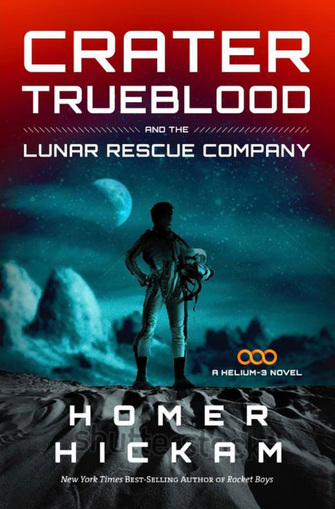 Interview by Brock Eastman Featuring Crater TrueBlood and the Lunar Rescue Company It’s no secret that sci-fi books own a very special place on my shelf and in my heart, especially novels that deal with space exploration and space travel. After all I write a sci-fi series about a family hyper jumping all throughout space. When I first heard that Homer Hickam, author of Rocket Boys, was writing a Young Adult series about a space mining colony I was over-the-moon, okay that was a terrible joke. But I really did go out and get the first book, followed by the second. You might be surprised that the technology concepts Hickam writes about in the series are soon to pass from science fiction to reality, check out this article from National Geographic. So this month we celebrate, and I do mean celebrate the third book in this captivating look at our very near future. What happens when the moon becomes the next battleground? The book titled; Crater TrueBlood and the Lunar Rescue Company, gives us a look at a possible scenario. The Earth is devastated and the worst elements of humanity are determined to take over the moon. It's up to the settlers of the harsh, gray moon to fight back. Kidnapped by an evil group intent on the destruction of the world and capture of the moon, Maria Medaris, co-leader of the moon's richest and most powerful family, initially fights for her life, but is soon dazzled by the promises and enticements of her captors. Crater Trueblood, once rejected by Maria but still in love with her, and Crescent, a female bioengineered warrior fiercely loyal to Crater, use their cunning and deadly skills to come to her aid. But will Maria be on their side when they get to her? And what of the Earth itself which is in the crosshairs of a destruction not seen since the massive extinction of the dinosaurs? The fate of two worlds hangs in the balance. Who better to write a book about space exploration and a moon colony, than a guy who worked for NASA and wrote the best-selling memoir Rocket Boys. You might not have read the book, but you probably saw the movie adaption October Sky. As someone whose very interested in space exploration, followed the building of the International Space Station, the upcoming Chinese missions into space, and watched October Sky until his VHS tape went bad, it’s not a surprise that I was over-the-moon to have the chance to interview Homer Hickam. Alright the joke didn’t work there either. Brock: How did you come up with the idea for the Helium-3 novels? Homer: I'm best known for writing memoirs and adventure tales but one day I started thinking about a mining town much like the one I grew up in, except it was on the moon. After that, it was a matter of imagining what life would be like in such a town, especially who would live there. Then I started to think about an orphan brought up in a tough place where there are no child labor laws and decided to follow his adventures over a trilogy that became known as the Helium-3 series. Most of my books are suffused with my own special brand of humor and this series is, too. Crater is a conservative, honest, and straightforward young man often surrounded by thieves and maybe a few murderers who don't always have his best interests at heart. There's a lot of room for humor in such a situation. In the first book titled Crater, Crater is sent off by his boss on what he thinks is just another job when it is, in fact, a suicide mission. In the sequel, titled Crescent, Crater's a little older and wiser but he's still surprised when people are dishonest. Every hero has to have an advantage and Crater's is his gillie, a prescient clump of slime mold that can hack any computer ever built. It's also more than a little snarky and sneaky and Crater has to rein it in at times. In Crater Trueblood and The Lunar Rescue Company, Crater is faced with his toughest challenge, rescuing not only his girlfriend but, incidentally, the world! Brock: How has your own story, influenced writing the Helium-3 novels? Homer: Moontown, Crater's home town, is modeled after Coalwood, West Virginia, the town where I grew up. Like Moontown, Coalwood was a rough place filled with interesting people, most of them kindly but a few very dangerous. Brock: What was the most exciting project you took part on while working with NASA? Homer: I was privileged to work on such key projects as the Hubble Space Telescope repair mission and training the first Japanese astronauts. It was very exciting to work underwater (which simulated space) in the EMU (space) suit to figure out how to repair the Hubble. It was also exciting to live in Japan and be part of a great new space program. Before I left the agency in 1998, I traveled to Russia and established the plan for training the astronauts on the International Space Station. I wrote about my NASA career in a short memoir titled Paco: The Cat Who Meowed in Space. Brock: You’ve been a busy guy. Tell us about the main character Crater Trueblood? Homer: Crater is trustworthy, honest, resilient, super-intelligent, studious, patient, reverent, loyal, kind, and brave. In other words, he is a true lunar boy scout nerd but as the trilogy goes along, we notice he is becoming a little more "worldly," although that term might not work for a fellow who's lived on the moon his entire life. Another thing about Crater is that he is in love with a girl who isn't sure she loves him back. That kind of thing does strange things to a boy's head. Brock: Besides both being male, are you and Crater similar in anyway? Homer: We both believe that if we work hard enough, we can do anything. Otherwise, Crater has the mindset of an engineer and looks at everything in precise terms and solves problems according to his understanding of physics, thermodynamics, chemistry, and so forth. That's not the way my mind works at all. When confronted with a problem, I usually head for the outer edge of the universe and work my way back to solve it. In other words, Crater is pretty uptight and I'm kind of flexible. That's what makes it fun to write about Crater. He's always so serious and forthright and linear while all around him, there's chaos that he can't quite understand. Thank goodness he has his gillie who is more than willing to break laws and do other sneaky things on Crater's behalf. Brock: In three sentences, what is this book about? Homer: The story is ultimately about the courage it sometimes takes to stay loyal to friends and family. In the initial chapters, Crater insists on rescuing Maria, his erstwhile girlfriend, after she's kidnapped by her estranged father and genetically-tweaked creatures and carried off to the far reaches of space. Even though they know they have a good chance of getting killed, his friends and colleagues go along with Crater out of loyalty, only to discover they have to not only save Maria but also the world! Brock: It’s clear space is a passion for you, but why did you choose the moon? Homer: I've always had a particular fascination with the moon because I believe it is the obvious place to start a space-based civilization. Since its mass was probably created by a chunk of the Earth, it is, in a way, our eighth continent and therefore deserving of settlement. It's also relatively close and is filled with resources such as Helium-3, the isotope the series is named after. Helium-3 covers the moon and will be the perfect fuel for fusion reactors after that technology matures. As recounted in my memoir Rocket Boys, I also famously suggested to Presidential-candidate Senator John F. Kennedy that the USA should go to the moon. His reply to the crowd of coal miners around him was if he got elected, he might just do that. Sometimes, it's kind of fun to claim credit for what ultimately became the Apollo lunar landing program so naturally, I love the moon! Brock: That’s really cool. The technologies that you included in the books so far, are any of them real? In prototype form? Proposed? Homer: Fusion reactors utilizing Helium-3 are in the design and testing stages. An interesting aspect of these novels was that I had to figure out how to mine Helium-3 on the moon. To my knowledge, no one had ever done that. With my mining background, I set about to make the machines that Crater and the other miners use as realistic as possible. The orbital Cyclers, the lunar elevator, the jumpcars (essentially moon taxis), and scramjets I write about in the novels all use technologies already developed. The fusers, which are fusion-driven rocketships capable of tremendous velocities, are feasible but not yet on the drawing boards. The technology of genetically tweaking human beings, probably the most important technology written about in these novels, is coming at us with astonishing speed and the stories about them are something of a warning about that. Crater first meets the Umlaps, people born to do heavy labor who are somewhat comical with their sour outlook on life and reverse facial expressions (e.g. they smile when they're sad). Next, he meets the Crowhoppers who are fearsome, ugly warriors born to kill. Finally, he comes across the Helpers, low IQ people born to be slaves. Umlaps, Crowhoppers, and Helpers are feasible and when such humans are brought to life (notice I don't say "if"), humanity will be faced with tremendous ethical and moral dilemmas. Crescent the crowhopper is an example of this. After she's captured by Crater, she discovers she has a soul and is as human as anyone. Still, her outward appearance is frightening and she has to struggle for acceptance, not always successfully. Crescent is one of the most tragic characters I've ever written about but she is also very brave and an inspiration to anyone who has trouble being accepted by society. Brock: The depth of characters and development of those characters, has been a strong point of the series. Do you believe there will eventually be a permanent settlement on the moon? And if so, how far in the future? Homer: Yes, I do. It is inevitable. We need the resources there and it is also the perfect place to build a telescope to see to the far reaches of the universe. How far in the future depends on how smart our leaders are. We could do it in a few years or decades from now. Civilizations have fallen when they've ignored such opportunities. We shall see. Brock: I sure hope it’s in my lifetime. What do you hope kids take away from the series? Homer: I hope they take the books and hand them to their parents and teachers and say "Read this, I think you'll like it, too!" I also hope they take away an understanding that when faced with tough situations, it's best to be like Crater and his friends and not ever give up. Brock: That’s a great lesson for anyone, and I agree adults and kids alike will love this series. Is there any biblical background or basis for the series? Homer: Crater believes there is a great deal of power in prayer as do the people of Moontown. They pray before they work on the Helium-3 scrapes and afterward, too. They recognize that there is a Creator and that they are part of His great plan. In a way, the people on the moon are similar to the Israelites who've escaped Egypt and are trying to make their way in a new "promised land." However, Egypt (in this case the Earth), just won't leave them alone. Brock: Did you outline the entire series, or do you write as you go and let the characters take control of the story? Homer: A little of both. I usually know where I'm going without an outline but when I get stuck, I'll outline so I really do know where I'm going. Characters can, it's true, get a little unruly sometimes. I'll give them some slack if they're going to an interesting place but if I discover they've carried me off into the proverbial swamp, I'll drain it and start over. Brock: A good tip, I can’t tell you often my characters take me deep into muck, and I spend hours and thousands of words trying to get back out. My editor really loves these scenarios. What’s a normal writing day like for you? Homer: Fresh new writing is done from 8 AM to noon every day except Sundays and sometimes then if a deadline looms. I rewrite in the afternoons. I'm pretty disciplined about my writing. Without it, I'm not certain what I would do except probably get into all kinds of trouble. Everybody needs a passion in their lives, something that keeps them going, and writing is mine. Brock: I thought October Sky was an amazing movie. Do you feel it reflected your memoir Rocket Boys accurately? Homer: I agree that Rocket Boys, the book October Sky the movie is based on, is indeed amazing which is, of course, what you probably meant to say. So many folks have wondered about how I came to write that book and how the movie got made that I've written a short memoir about it titled From Rocket Boys to October Sky which was published last year. As you will read, I was very much involved with the making of the film although I had my disagreements with parts of it. In the end, I was happy the way it all turned out. My biggest problem now is I have to go around apologizing for not actually being Jake Gyllenhaal! Also, people who have only seen the movie and not read any of my books perceive I'm a rocket scientist, rather than a writer. For the record, I started writing in the third grade and it has always been my greatest passion. I like to say I wanted to be an engineer but I had to be a writer. October Sky, by the way, is an anagram of Rocket Boys. Why and how that name change came about is a story I tell in the short memoir and is terribly amusing to everyone but me. Brock: Ha, ha, oh marketing. I also write Sci-Fi novels set in space, why do you think this genre is important or fun to write about? Homer: My approach to Sci-Fi is like all my books and that's to first create interesting characters because, no matter what the setting or era, I think people are most interested in other people. The reader can also be pretty confident that I know what I'm writing about and that's especially important if the book is set in space. Space is a terribly unforgiving and harsh place and the writer has to understand what makes it so dangerous before the story can really work. Readers may not know all of the physics involved but they can sense when it all seems too easy. In the Helium-3 series, nothing is ever easy which is part of the fun. I'm glad you're writing in the genre. It is indeed a great one for writers and readers where anything can happen! Brock: Are there any other books after Crater Trueblood planned? Homer: I never say never but I wanted to write a science fiction trilogy and this is the third novel. Without giving anything away, let's just say there is room for more Crater Trueblood adventures although it would probably take place far, far, (did I mention far?) from the moon. Of course, ultimately the marketplace rules. The more people who read the series, the more likely there will be more novels. Brock: So if you’re reading this article, do myself and all the kids who have read the series a favor, go get yourself the full trilogy! Thanks again Mr. Hickam for the opportunity and for the great books. Oh, and thanks too for getting our Space Program going with your suggestion to the future president. 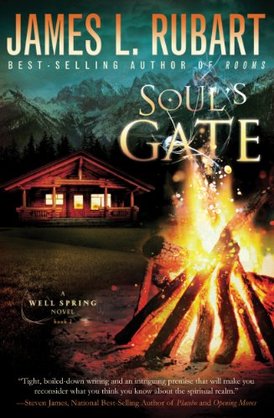 Interview by Brock Eastman Featuring the Well Spring Series The first thing you see when you visit James Rubart’s website are the words “Live Free.” Then Rubart poses a reflective question and offers a path for your to take to find freedom. He asks, “What keeps you from living in freedom? Shattered dreams? Broken relationships? Fear? No matter where you're at, I believe you can find life-altering freedom. Getting there is at the heart of all of my novels. Let's go.” And so let’s learn more about Rubart’s latest novel and series. Brock: How did you come up with the idea for the Well Spring series? James: At the real life Well Spring Ranch which is hidden in the mountains west of Colorado Springs. Both my publisher and I wanted to develop an epic story and we went there to brainstorm ideas. My first three novels were focused on one protagonist and their story, which worked well, but I was ready for a bigger adventure with multiple main characters and higher stakes. We started praying, and within half an hour came up with what we thought was a compelling premise: What if a 30 year old prophecy called four ordinary people from different walks of life to fight for healing and freedom by sending their spirits into other people’s souls? Brock: Whoa! That does indeed sound like an exciting premise. Next time you’re in my neck of the woods, please look me up so we can grab some coffee. Tell us about these four main characters that send their spirits into other people’s souls. James: Reece Roth walked powerfully in the things of the Spirit years ago, but was taken out when his wife and daughter were killed. Now he’s stepped back in the arena to guide and train the other three of the prophecy, but it’s forced him to face his greatest failure in the process. Dana Raine is the General Manager of a Seattle radio station and is a born leader, but her fear of abandonment, as well as being thrust back into relationship with the man who broke her heart threatens to cripple her God-given destiny. Marcus Amber is a brilliant physics professor at the University of Washington who has had to face his deepest regret and overcome it, because if he doesn’t, he and the other warriors will be destroyed. Brandon Scott is multi-milling selling singer and song writer but still struggles with his worth. And when his career starts to slip away he has to make the choice to save himself, or allow his dream to die, bringing astounding freedom to the other warriors. Brock: In three sentences (or less) what are the three books in the series about? James: Soul’s Gate: Destiny and freedom Memory’s Door: Throwing off the chains of regret Spirit Bridge: Stepping into our true identity Brock: I can see how your statement about a path to finding freedom can be truly laid out in your books and this series. What is the biblical background or basis for the series? James: I’ve always been fascinated by scriptures in the Bible that many Christians have missed or ignored: Hearing God’s voice, teleportation, turning invisible (yes, it’s in there) traveling into spiritual realms, etc. Miraculous events that happen repeatedly in the Word, but we don’t talk much about. Was it real back then? If yes, is it possible for those things to happen today? I wanted to tear open my own small box of beliefs and my reader’s boxes as well. And the response has been wild. People have e-mailed me telling of incredible things that have happened to them. But more than that, the heart of the series is my characters finding healing for their deepest wounds, and then taking that message of freedom to others. I want my readers to be wildly entertained by my novels, but I also want them to come away with more freedom and healing than they’ve ever experienced. Brock: And it sounds like on that you are delivering. How many books are planned for this series? James: Spirit Bridge is the last one, so just three. We wanted to go till the story ended and we felt like Spirit Bridge ties up the story arc in the most powerful way possible. To write another book would be pushing the series beyond where it should go. (But for those who have enjoyed the series, they needn’t worry, I think one or two of the characters from the Well Spring series might pop up again in another story down the road.) Brock: I’ll certainly be looking for those next books. Did you outline the entire series, or do you write as you go and let the characters take control of the story? James: Outline? Wait a second, Brock. Are you saying you can outline these things? I definitely let the characters take control. For me, writing is sitting down at my laptop and waiting till the movie starts playing in my head. Then I transcribe the movie. It’s a mess, but after it’s all down, I go back and do my best to clean it all up. Brock: You’re my kind of writer. That’s exactly how I write. My characters often take control, and when I follow where they lead I find a better story than I could have planned. Any certain research required for the book, or is it all straight from your imagination? James: All straight from my imagination. But I think most novelists are doing research all the time—even if they don’t realize it. We collect information in every moment, often subconsciously. An interesting conversation here, an intriguing fact there … then when we’re writing, the collection rises to the surface and we skim off the interesting bits and put them in our stories. At least that’s the way it works for me. Brock: Yes, I have thousands of pdfs saved from intriguing articles I find online. Always another story waiting to be explored. Are you working on your next book? And if so can you give us a hint at your next book? James: Yes, just turned in the first draft of my next novel. It’s a standalone and I’m pretty excited about it. Don’t want to give away too much, but here’s the premise: What if the Great Cloud of Witnesses did more than just watch? What if God used them to turn our life upside down in order to bring us into more freedom than we’ve ever known? Brock: I’ll be adding that to my wishlist right away. What is your favorite genre to write for? James: One I’ve only dabbled in so far with a few unpublished short stories: Time travel. I’ve always been fascinated by the idea of time travel. What would we change if we could go back? What would those changes cause in our present? What does that say about our willingness to accept and trust God with the way our life has turned out? Brock: Great questions. Mind boggling to consider. I like your last point about trust. Where do you like to write? Didn't you win a contest for a cool writing space? James: Does winning a Starbucks certificate count? Yeah, I have a pretty fun place to write. I built a secret room in our house about eight years ago, and that’s where I do the majority of my writing. You get to it through a tiny door at the back of my youngest son’s closet. When I was a kid I had dreams when I slept of having a secret room, and now it’s come true. Pretty cool. Brock: Super cool! After I read about that, I got my tape measure out and started measuring an open space we have above a stairway. I haven’t proposed the project to my wife yet, but I’m going to. Are you a full time writer? James: Almost. About 70% of my time is doing all the things that come with being an author. The rest of the time I run a small marketing firm which I’ve done since ‘94. I work with authors and businesses on their marketing and I love it. Brock: Okay writing and marketing! My favorite things! You and I really do need to do coffee. How long does it usually take you to write a single book in the series? James: On average, the initial draft takes around ten weeks. It’s a sprint, I know, and afterwards I need recovery time. But it’s the way that works best for me. Brock: Everyone seems to have a "how I got published" story. What is yours? James: Summer of 2002 my wife says God has told her go on a fast. Says she doesn’t know why or how long it’s going to last. After the first day I ask if God has told her anything. “Nope.” At the end of the second day I ask again. “Nothing.” I ask how long she’s going to go on. “Till God speaks.” Halfway through day three, a light bulb goes off over my head, and I feel like God is saying, “I’ve given you the desire and ability to write, when are you going to step into your destiny?” I turn to Darci and say, “I know why you’re fasting. I’m supposed to be a novelist.” She stares at me and says, “Wait a minute. I’m hungry for three days, and you get the answer?” It was pretty funny. That was my wakeup call and I finished my first novel three years later. In late 2005 I submitted to four contacts I had, and all rejected it. Then in the spring of ’06 I went to the Mt. Hermon Christian Writers Conference and it opened up worlds for me. By that September I signed with an agent and he shopped ROOMS to all the major publishing houses. All said no. They thought my writing was okay, but ROOMS was a little too out there and then didn’t know what to do with it as it didn’t fit into any defined genre. (ROOMS is the story of a young Seattle software tycoon who inherits a home on the Oregon Coast that turns out to be a physical manifestation of his soul.) But one of the editors who rejected it (David Webb who was the Executive Editor at B&H Fiction at the time) wrote an e-mail to my agent that said, “ … if this doesn’t sell in six months, bring it back to me.” A year later, I sat down with David at a conference and read his own e-mail back to him. He smiled and said, “I’ve read 200 manuscripts since I read yours, and yours is the one I can’t get out of my mind. Let’s take another run at it.” We did, and David sold his pub board on the novel in June of ’08. Rooms came out in April of 2010, hit the bestseller list, won the RT Book Reviews Inspirational Novel of the Year Reviews Choice Award, and my career had begun. I ended up doing three novels with B&H Fiction. These days I’m writing for Thomas Nelson. Brock: I always love hearing those stories. God has us each on such unique stories, and the truth is, everything is in his time. What’s your view on e-books and the new publishing revolution? Any e-book plans in your future? James: I think it’s the Golden Age of Publishing, and the Dark Ages of Publishing, both at the same time. Golden because anyone can publish a book—and the stigma of self-publishing is just about gone. It’s the dark ages because most people who are indie publishing aren’t ready so there’s a glut of books on the market and sometimes it’s hard to separate the wheat from the chaff. Yes, I think there are e-books in my future. I of course have e-books for all my traditionally published novels, but I’m excited I have a number of short stories I’ve been working on that I want to publish as e-books. Brock: What was your favorite book as a teen or child? James: When I was a tweener (11 years old) my mom bought The Chronicles of Narnia for my sister and me. They captured my heart and imagination. Those books birthed the desire inside me to write. I wanted to try someday to do for others what Lewis had done for me. As I got older I devoured his books—both fiction and non-fiction—and he’s been my favorite author ever since. Brock: If you could have dinner with three people, living or dead, who would they be? James: C.S. Lewis (see above), my dad (who passed away in 2010—I miss him tremendously) and my wife. That would be an epic dinner party. Brock: Favorite place to vacation and why? James: The northern section of the Oregon Coast. My wife and sons and I spent many vacations there. Spectacular scenery, miles of ocean, watching the thundering waves, building sandcastles with the boys, long beach walks with my wife … love it there. Brock: I’ve always wanted to see Oregon, maybe sometime soon. Do you have a particular drink or food you consume when you write? Like cocoa, raspberry tea, animal crackers? I love Apple Cider and stove popped popcorn! James: Ha! Great question. Sunflower seeds and apple juice. I don’t eat sunflower seeds any other time, but while I’m pumping out that first draft I go through about eight bags of David’s Jumbo sunflower seeds. And lots of apple juice. Brock: I’m getting a craving for some BBQ ones now. Do you have a favorite Bible verse? Have you incorporated it into any of your books? James: Yes and yes. But what I call my favorite verse depends on the season of my life and what Jesus is doing at the time. An author friend of mine told me a number of years ago that his novels are simply his journals in published form. I really resonated with that, so I get favorite verses for a time and that scripture will invariably show up in my current novel. For the novel I just turned in, it’s a few verses from Hebrews chapter 12: “ …This trouble you’re in isn’t punishment; it’s training, the normal experience of children ... why not embrace God’s training so we can truly live? … God is doing what is best for us, training us to live God’s holy best. At the time, discipline isn’t much fun. It always feels like it’s going against the grain. Later, of course, it pays off handsomely, for it’s the well-trained who find themselves mature in their relationship with God. (The Message) Brock: Thanks for sharing your story with us. If you’re reading this be sure to check out Rubart’s latest novel Spirit Bridge. The Warriors Riding have battled in astounding supernatural realms, set captives free, and awakened thousands of hearts. But now their only chance of survival depends on calling for The Spirit Bridge. Reece, Dana, Brandon, and Marcus have achieved staggering success in the spiritual realm . . . but each is reeling from vicious attacks. They need rest. A break from the war. But the warlord Zennon is raging and will give them no quarter. The demon holds what he believes to be the trump card—a hidden strategy set in motion before Warriors Riding even began—that will detonate the team from the inside out. And he's just set it loose. The street magician Simon—finally free of Zennon's alternate reality prison—is racing to remember his past before his ignorance obliterates his destiny. Then there's Miyo—a brash young warrior with advanced knowledge of spiritual realities and supernatural armor even Reece doesn't know about. These two will be pivotal in the final war. If only the Warriors knew which side Simon and Miyo are truly on. If only they knew how to fight against Zennon's final assault. The Spirit Bridge is the epic conclusion to acclaimed author James L. Rubart's Well Spring series, which will propel each of the Warriors Riding on a quest of true identity, ultimate freedom, and a final battle that will leave them changed forever. James L. Rubart is the best-selling and Christy award winning author of ROOMS, BOOK OF DAYS, THE CHAIR, SOUL’S GATE, MEMORY’S DOOR, and SPIRIT BRIDGE. During the day he runs Barefoot Marketing which helps businesses and authors make more coin of the realm. In his free time he dirt bikes, hikes, golfs, takes photos, and occasionally does sleight of hand. No, he doesn’t sleep much. He lives with his amazing wife and two sons in the Pacific Northwest and still thinks he’s young enough to water ski like a madman. More at http://jameslrubart.com/ 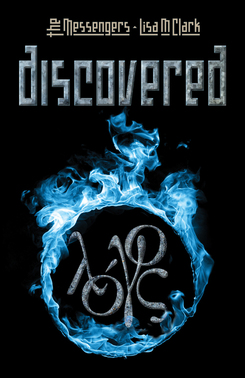 Interview by Brock Eastman Featuring Discovered The Message worth dying for. . . The government tells fifteen-year-old Simon Clay everything he needs to know. Except what really happened to his mom. And why no one can go out at night. And why the Darkness is so dangerous. By day, Simon pushes against every boundary there is. And by night, secret visitors and hidden messages make him question everything his life entails. There’s a truth out there to be discovered, a truth the government will stop at nothing to stamp out. Join Simon and the Messengers as they risk their lives to protect it. ". . . Doled out in small but potent doses, the Message is sweet like honey to all who hear it in this debut thriller that is appropriate for children probably as young as ten. Lisa Clark’s writing is tightly effective, but the heart with which she deals with the theology is light and jubilant. Young readers will love the rebellion against the authorities, while parents will delight in handing their children a book that not only encourages sharing their faith—even in the worst circumstances—but also embraces the importance of family, love, and friendship. [It is] the first of a series, and I have no doubt that Clark’s writing will quickly take this book to the top of the growing YA inspirational genre." —Colleen Oakes, Author of the best-selling Queen of Hearts Saga Brock: How did you come up with the idea for this book or series? or What was your inspiration for writing this book or series? Lisa: I was driving in my car, listening to some instrumental music, and this world began to form in my mind. Little did I know that it was an answer to many thoughts and concerns that were weighing on me as I considered our society, life as a Christian, and especially teenagers who are navigating their lives through eyes of faith. It was as if everything came together in a fictional world to help me better understand my own. For example, as a former high school teacher, I have a great respect for teenagers: how they witness in their world, how they talk with one another. Christians in our society today have lives that are countercultural, and this can be especially difficult for youth with the expectations their peers have for them. Anything I can do to encourage them in their bold witness of simply living out lives as Christians—I’m in. That’s one reason for this book. Brock: Tell us about the main characters? Who are they, what makes them unique. Lisa: In a way, Simon is an unlikely hero, especially for a Christian novel. That’s really the point. God can use us all. Plus, I wanted him to be real—with faults, flaws, and the occasional bout of grouchiness. Jack, Charity, and Ben—these kids could have walked into my high school classroom on any given day. They’re each so different, and I love to watch how they interact with Simon in their own ways. And then there’s Jonathan, Zeke, and Mrs. Meyer. I hope their stories remind us to thank the Jonathans, Zekes, and Mrs. Meyers in our own lives. The Malachis too. Brock: Give us one fact about each main character that no one else knows. Lisa: Secrets are a big deal for the plotline of this book and the one(s) to come. What can I say without big spoilers? Simon’s love life is about to get a little crazy in the next book, Concealed. Brock: In three sentences (or you can choose three words) what is this book about? Lisa: Here are three main points: --There is a Message worth dying for. --As Christians, we are not alone. --Yes, this world is messed up, but the victory is already won. Brock: Do you outline the entire book before starting, or do you write as you go and let the characters take control of the story? Lisa: A balance of both. I know the must-have plot points before I dive in. Then, when I sit down to write each chapter, I tell myself what key action needs to happen by the end of it. But there are so many times I sit back and ask Jack or Charity or Simon, “Now what?” And they guide the way. Brock: How do you believe this story relates to the lives of readers? Lisa: It is my prayer that this story feels incredibly real to my readers: On a small scale, because it walks a path that many believers know. On a larger scale, because the situations could very easily happen anywhere, including our own country. On a huge scale, because this is the narrative of all believers from the beginning of time; we all share this story. Brock: What is your favorite genre to write for? Lisa: For fiction, I love dystopian literature. I believe it is a perfect genre for the Christian message. Dystopian books, in summary, say this: something went wrong in the world. As the plot unfolds, readers figure out the mystery of what when wrong and why it happened. At some point (not always in the first book), a group of people works against the bad to restore the good. One point I want to make in this book is that we live in a dystopian world. Something went wrong; creation is fallen. As we learn more about what happened and why, we also learn about our Savior, who brings restoration now and forever. Brock: What is the biblical background or basis for the series? Lisa: There are a lot of ways to answer this. One narrative throughout the book is the story of a biblical figure. In Simon’s own story, Scripture increasingly informs his life. But I also looked to the history of the Early Church for background—as well as the history of the Church today. Brock: How many books are planned for this series? Lisa: Great question! In some ways, this depends on the readers and what they want to learn. Right now, I’m thinking in a plot arc of a trilogy, but there’s a lot of room to grow as well. Brock: Any certain research required for the book, or is it all from your imagination? Lisa: Yes! See above. This story is informed by hundreds of other stories in history. Brock: How do you strike the right balance in your book? Lisa: That was tricky. Dystopian literature has been around for a long time, not just during the current craze. Because of that, the spectrum is a wide one of what could be considered dystopian. Also, as I said before, I believe that the Christian worldview and dystopian literature have a lot in common. However, there are important differences. I also know that many Christians will read this even if they aren’t familiar with dystopian literature. So I kept this unique blend of readers in mind as I wrote to my audience. I hope my focus on the reader helps keep the balance. Brock: How does it feel to have your work published? Lisa: It’s surreal. On a day to day basis, I don’t think about it too much. But I’ll be stopped by a friend or an acquaintance who shares with me what Simon’s story means to them. I nearly tear up when I think about how Simon isn’t just a part of me anymore; he’s become important to many lives. That connection is powerful. I thank God for this new form of community. Brock: Why did you choose to focus on a male protagonist? Lisa: I chose a male for a few reasons. One is that I wanted to make my protagonist distinctly different from me in some way. I was concerned that this “child” would too easily become a clone of myself if I wasn’t careful. It was one way for me to distance myself just a bit. Brock: Are you working on the next book in the series? Lisa: Yes! Readers keep asking me when it’s coming out, and that’s great motivation for me to keep at it. Brock: Can you give us a hint at the next book in the series? Lisa: Oh, poor Simon. At the end of Discovered, he realizes that his journey is only just beginning, and he couldn’t be more right. It’s going to be difficult for me to watch him go through his next challenges. Brock: Do you plot or outline the entire series before you begin writing, or do your books take on lives of their own? Or is there a combination? Lisa: Yes. I have basic “must-have” points in mind for the overall trilogy arc, and I know generally where I want to space them out. I think that’s tough for people who don’t often read trilogies. They want all the answers immediately, and that can’t happen. That said, one particular plotline took on a life of its own during Discovered, and I realized that the exciting parts for two of my characters need to wait until Concealed. Brock: Were any scenes or characters cut from the book? Can you give an example? Lisa: I cut out a few characters from Discovered, but a few of them are fighting to get into Concealed, so I think I’ll have to keep you waiting a little longer. Brock: Is it difficult to be accurate to a biblical perspective or biblical facts when writing fantasy fiction? Lisa: I take this so seriously, especially because there is one narrative in each book that relies heavily on Scripture. I tried to be careful not to write anything that I couldn’t support with things we know about these fellow believers. I want to honor their lives, and I most definitely want to honor the truth of God’s Word. Brock: How do you hope parents will use this book with their kids? Lisa: I hope they read it too and talk with their kids about it. Lots of parents have told me great stories about their interaction with their son or daughter about Simon. This makes my day each time I hear it. Brock: What do you hope kids take away from this book or series? Lisa: This world isn’t perfect, and neither are you. But Jesus is, and He’s the hero of this story and every story—no matter how tough it gets. Brock: Where do you like to write? Lisa: For fiction, I need to have a table because I need to have snacks. Ha! My husband is a pastor, and we often sit at the dining room table after the kids are in bed. He’ll write his sermon or prepare for a Bible study, and I’ll write too. He’s dubbed this our “evening compositionals.” Sometimes, I’ll just stop wherever I am to write. Ideally, though? I dream of writing in a cabin surrounded by wooded hills. Someday, maybe. Brock: Are you a full-time or part-time author/writer? Lisa: That’s becoming more difficult to answer, theoretically. For my “day job,” I am an editor, which is great to keep my perspective focused on all that goes into a book (not just the writing!). My writing role is a bonus. Except I think that most writers know that writing is easier when you keep your writing muscles active. It takes practice and, ultimately, an entire mindset. In that respect, I think writing has been taking over a large part of who I am. More and more, I see the world through the eyes of a writer, and I think that’s a good thing. Brock: How long does it usually take you to write a single book? Lisa: Well, I’m new at this, so “usually” is tough to answer. I started Discovered in April of 2015, and I finished it in January of 2016. I’ll admit there were some very slow and some very busy months within that span. Brock: When did you realize you wanted to become a writer? Lisa: In grade school, I was interested in being a writer (among other things), but I had no idea how to go about becoming one, and I was too intimidated to seriously ask. As time went on, however, writing became something I did, usually to meet a need of some kind. It became less about the title of being a writer and more about the action of writing. Am I writer? I guess so. Do I write? Certainly. Brock: What was your favorite book as a teen or child? Lisa: I loved To Kill a Mockingbird and Fahrenheit 451. (I still do!) It’s rare that I come across a book I don’t like. Even then, I can usually appreciate it. Brock: What are your hopes for your future as an author? Lisa: I pray that my words are a blessing to people, and that they point to Christ. The details are in God’s hands. Brock: In what ways does your faith impact how you approach writing? Lisa: It’s my motivation. My faith informs all I do; I can’t separate it from who I am. I thank God that He’s enabled me to write, and I pray that I write faithfully as long as God calls me to do it. Knowing that I have the Message worth dying for influences me to share it in whatever ways I can. Brock: Coke or Pepsi? Lisa: Coke Brock: Soft shell or Hard Shell tacos? Lisa: Hard shell. My year of braces in grade school fulfilled my lifetime quota of soft shell tacos. Brock: Favorite place to vacation? Lisa: Southern Missouri. Give me trees, hills, and apple turnovers. Brock: Favorite season? Lisa: Fall. The colors, the smells, the culmination of the fruits of labor—it all fills me with joy. Brock: Do you have a particular drink or food you consume when you write? Like coco, raspberry tea, animal crackers? Lisa: I always have a snack nearby. Popcorn or tortilla chips are often on hand. (Chocolate has proven to be too dangerous.) The beverages vary: often, it’s something fizzy. Brock: Favorite color? Lisa: Purple Brock: Do you have a favorite Bible verse? Lisa: That’s so tough! As a teen, I used to keep a whole list on hand. I’ll give three. Matthew 28:20; Proverbs 3:5–6; and Philippians 4:13 (A friend sent that one to me every time I panicked when writing this novel.) Brock: Favorite pasta dish? Lisa: Cavetelli con broccoli. Brock: Salsa or guacamole? Lisa: Guac. I love avocados. Brock: Do you listen to music while you write? If so what are some examples? Lisa: Always, when writing fiction, devotionals, and the like. For fiction, it has to be instrumental, preferably soundtracks. (Thanks, Hans Zimmer, Alexandre Desplat, and friends.) I also write hymn and song texts. At that point, I can only have a tune in my mind as I write to it. Brock: How would you encourage new writers? Lisa: Just try. Don’t worry about whether or not you’ll be great at it—then the focus is on you. If you enjoy writing, write. Maybe it’ll be a blessing for two people. Maybe it’ll be a blessing to two million. That’s not for you to decide, and there’s great comfort in that. Lisa M. Clark is an editor and writer. As a former high school teacher, she has great respect for teenagers and enjoys engaging with them about God’s Word. She has a bachelor’s degree from Concordia University, Nebraska, and a master’s from the University of Missouri, St. Louis. In a trend that will surely be replicated many times but never perfected in the same way, Lisa Clark has combined heady Christian theology and a dystopian YA thriller. . . . Simon is the son of a secretive—but loving—father who discovers [the truth about] the Darkness. Author's Website: https://www.cph.org/lisamclark Author Facebook: facebook.com/LisaMClark.CPH/ Author Twitter: @lisamclark1 Author Instagram: Lisamclark.lc Interview by Brock Eastman Featuring The Songkeeper Chronicles War ravages Leira and the Song has fallen silent. Freed from the hold of a slave ship, Birdie, the young Songkeeper, and Ky, a street–wise thief, emerge to a world at war. Hordes of dark soldiers march across Leira, shadowed by whispers of plague and massacres, prompting Ky to return to his besieged home city in hopes of leading his fellow runners to safety. Desperate to end the fighting, Birdie embarks on a dangerous mission into the heart of the Takhran's fortress. Legend speaks of a mythical spring buried within and the Songkeeper who will one day unleash it to achieve victory. Everyone believes Birdie is the one, but the elusive nature of the Song and rumors of other gifted individuals lead her to doubt her role. Unleashing the spring could defeat the Takhran once and for all, but can she truly be the Songkeeper when the Song no longer answers her call? “Adams' characters are colorful, witty, and heartwarming. Her tale is a welcome melody that our souls long to sing. A new voice in fantasy, sure to thrill readers of many ages.” – Wayne Thomas Batson, Best-Selling Author of the Door Within Trilogy 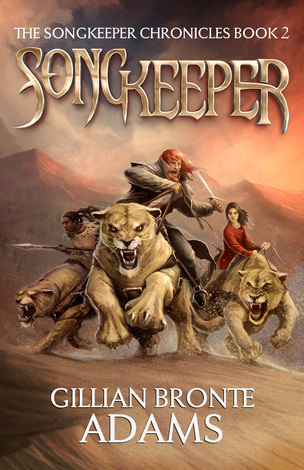 Brock: How did you come up with the idea for The Songkeeper Chronicles? Gillian: To be honest, I didn’t have much when I started. Just a name—Birdie—and a smidgeon of an idea. What if there was a girl who was the only one who could hear the music that had created the world? It wasn’t long before a gruff traveling peddler with wild red hair blustered his way onto the page and declared himself the “great” Amos McElhenny. And shortly thereafter, I found myself dodging soldiers and slinking down back alleys with a street thief named Ky. From that moment, the story that became the Songkeeper Chronicles was unleashed, and it took me five solid rewrites of the first book, Orphan’s Song, to untangle the wild mess. I guess you could say I’ve refined my writing process a bit since then. Brock: Tell us about the main characters? Who are they, what makes them unique. Gillian: There are three main point of view characters in the Songkeeper Chronicles: Birdie, Amos McElhenny, and Ky Huntyr. The Songkeeper, the outlaw, and the thief. At twelve years old, Birdie has spent most of her life an orphaned serving girl. Now as the Songkeeper, she can hear the Song that weaves through everyone and everything in Leira. She can also hear the individual songs of each person she meets—broken melodies, incomplete and twisted by suffering. Her gift is both a blessing and curse, for while it sets her apart as special in the eyes of some, it also sets her apart as potentially dangerous in the eyes of others. From the toes of his salt battered boots to the tip of his feathered cap, Amos McElhenny embodies the word unique. He is a self-made man, and he is proud of the man he has made himself. Over the years he has worn many different guises—sailor, outlaw, traveling peddler—and yet he prides himself on having remained the same man throughout. Deep down, Ky is a rebel. The thief who cares. The runner who can’t obey the rules of the streets if it means leaving a brother behind. The fighter who cares less about defeating the enemy and more about keeping his people safe. He is unquenchable. Indomitable. If you knock him down, he gets right back up, and he just keeps on coming. Brock: Give us one fact about each main character that no one else knows. Gillian: Oh, but that would be telling. *grins* I’m just going to have to point you to the books. Most of the characters facts that can be known now are in there, and the rest will be revealed eventually! Brock: In three words, what is this book about? Gillian: War. Brokenness. Peace. Songkeeper is about choosing to stand when standing in itself requires all the strength that you have. It’s about living in hope in the midst of brokenness. And it’s about walking in peace when everything within and without feels shattered by the turmoil of war. Brock: Do you outline the entire book before starting, or do you write as you go and let the characters take control of the story? Gillian: My writing process changes slightly with each new book. I generally draw up a very basic outline of the important plot points and then write my way from plot point to plot point. It’s like road-tripping through the story. I like it because it allows me room for creativity and sight-seeing as I go. But it can be dangerous because there can be a million different ways to get from point A to point B, and it’s way too easy to be distracted by rabbit trails and drawn right off the edge of the map. It also means I frequently write myself into a bind after managing to get my characters caught in a trap while my extremely unhelpful outline provides no other information than “somehow they escape.” Yes, that actually happened once … Brock: How do you believe Songkeepers relates to the lives of readers? Gillian: What you take away from a novel so often depends on what you bring to it, and I think this will be true with Songkeeper. With war looming on the horizon in Songkeeper, the country of Leira trembles on the verge of collapse, and each of the characters is faced with a decision—to risk all and dive into the fray, or to sit back in safety and wait until the dust settles. It’s easy to look at the changes happening in our own country, or the difficult situations that we face in our own lives, and expect someone else to step up and solve the problem. But we’re each faced with that same decision. Will we decide to do what we can today to make our world a better place, or will we sit back and watch the train wreck occur? Brock: What is your favorite genre to write for? Gillian: Epic fantasy has always been—and no doubt always will be—my favorite genre both to read and to write. I believe that the true beauty and glory of fantasy is its ability to capture the deepest truths and set them in a new light, to ask questions and inspire thought, and to leave the reader searching for something greater. That’s why it’s my favorite. The possibilities are limitless in story, world, character, and in the impact it can have on the reader. Brock: How many books are planned for this series? Gillian: The Songkeeper Chronicles is a trilogy. Orphan’s Song, book one, released in the fall of 2014. Songkeeper, book two, released in April. And I’m currently sprinting toward the finish line in the writing of book three. Brock: Any certain research required for the book, or is it all from your imagination? Gillian: Medieval weaponry and warfare! It’s always intrigued me, so I probably spend more time researching it than I actually need to. But it does come in handy when it’s time to write fight scenes—which I tend to do a lot, because those are my favorite scenes to write! Brock: Are you a full-time or part-time author/writer? Gillian: I am a part-time author. For my full-time day job, I work as the Equestrian Director and Assistant Junior Camp Director at a youth camp, which means I get to maintain and work with a herd of twenty or so horses, hang out with kids, and help facilitate the program. I teach classes, run trail rides, and stomp around in boots and spurs. (It’s pretty awesome.) I also write the Bible Drama scripts for summer camp, which is super fun. Novel writing takes place on my days off and in the evenings, so I stay pretty busy. Brock: How long does it usually take you to write a single book? Gillian: I am a notoriously slow writer. There are a lot of authors who write without looking back until finishing the first draft. But that has never worked for me. I write slowly and painstakingly and can spend an hour on a couple of paragraphs, reworking and rewording each sentence to get it just right. But while it takes me twice as long, my first draft usually winds up being much closer to the finished product. So in the end, I think it mostly evens out. Brock: Expound on the spiritual themes in Songkeeper. Gillian: Woven throughout Songkeeper is the struggle between walking daily in trust and the desire to seize control of your own life. I wrote this novel while recovering from a car accident and subsequent surgeries. I can be a fiercely independent person, so being forced to rely on others was a challenge, even as I knew in my heart that I should always be relying on God and not myself. Our lives are never truly in our hands, but there are times when that becomes more apparent than at others, and for me, this was one of those. It seemed such a long time since I had felt true peace, and I longed for it with every aching beat of my heart. That longing knitted itself throughout Songkeeper and led the story to an ending scene that I personally think is the most beautiful scene in the whole book. Needless to say, this book is near and dear to my heart. Brock: Favorite place to vacation? Gillian: It’s not so much a favorite place as a favorite style of vacation. I like anything that involves being around the outdoors. Cabin in the woods. Tent in the jungle. Bed and breakfast in the mountains. Cottage on the beach. Anything where you can bask in the glory of God’s creation while drinking coffee, with plenty of adventure near to hand. Brock: Do you have a particular drink or food you consume when you write? Like coco, raspberry tea, animal crackers? Gillian: Dr. Pepper. I’m slightly addicted. Slightly. And coffee. Lots of coffee. Brock: Do you have a favorite Bible verse? Gillian: My favorite Bible verse is ever changing, but there are certain Bible passages I find myself reading over and over again. The Psalms. Philippians. I John. Colossians. Hebrews. But Psalm 42:8 is one of my current favorites. “By day the Lord directs His love, at night His song is with me—a prayer to the God of my life.” Brock: Do you listen to music while you write? If so, what are some examples? Gillian: Oh yeah! I listen to a lot of music while I write. Every now and then I’ll stumble across an extremely challenging scene where I need complete and total silence in order to focus. But most of the time, I like finding just the right mood music for each scene. Certain fight scenes call for some good old fashioned classic rock. But for the most part, I listen to movie soundtracks. Some of my favorites are the soundtracks from The Lord of the Rings, Gladiator, the Eagle, Braveheart, and Master and Commander.  Website: gillianbronteadams.com Facebook: facebook.com/gillianbronteadams Twitter: twitter.com/theSongkeeper Pinterest: pinterest.com/thesongkeeper/ 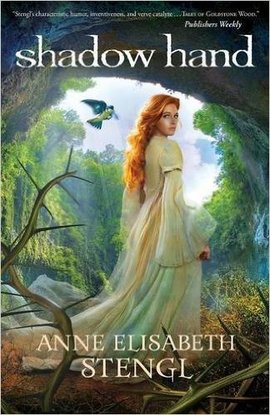 Interview by Brock Eastman in 2014 Featuring the Tales of Gladstone Wood Tales of Goldstone Wood has piqued the interest and engaged thousands of fans around the world. I had a chance to ask Anne Elisabeth Stengl about her vast series and the latest installment. I especially enjoy world building and losing myself in an author’s immense world. Tales of Goldstone certainly delivers on that! Brock: Anne, thanks for being here with us. How did you come up with the idea for the Tales of Goldstone Wood series? Anne: You know, I honestly don’t remember. I have been working on ideas for this series since I was a kid, penning out short stories and notes in various spiral notebooks. Some of those original short stories have matured and turned into the novels (Starflower and Dragonwitch, for example). Some of the characters and poems and legends have carried over as well. But I’ve been writing Goldstone Wood for so long (and intend to keep on writing it for so much longer!), that pinpointing an original inspiration would be impossible. Brock: Take a moment and tell us about the main characters in Shadow Hand? Anne: Shadow Hand features Prince Foxbrush, who has recently been named heir to the throne of Southlands . . . an honor he always rather thought he deserved over his cousin, Lionheart, but never really expected to get. And he’s discovering (as my characters often discover along the way), that getting his dream-come-true is really not all it’s cracked up to be. But he’s betrothed to the girl he’s loved since childhood, the beautiful Lady Daylily . . . . . .who opens the book by running away on the morning of their wedding, determined never to be seen again. She is a deeply repressed young woman with a mind teetering on the verge of madness. In her bid to escape, she lands herself in far more danger than ever. Worst of all, she becomes more dangerous than ever. Brock: In three sentences what is Shadow Hand about? Anne: When Lady Daylily runs away on the morning of their wedding, Prince Foxbrush sets out to find her, plunging into the dangerous Wood Between, where Faeries live and mortals die. In his mad pursuit, Foxbrush finds himself stepping into legends out of his own country’s past, and he himself standing in the legendary hero’s role . . . which means Lady Daylily herself has become his enemy. He must fulfill the strange, dark bidding of an ancient poem if he is to have any hope of saving both Daylily and his kingdom. Brock: How many books are planned for this series? Anne: I don’t have a set number in mind. This is a series about a world, not about a specific cast of characters. And it is a large, varied world with so many possibilities, I could keep on writing in it for years to come. I currently have 15 full-length novels in mind, not to mention numerous shorter works (such as my recently released novella, Goddess Tithe) and several spin-off series ideas. Each book is written to be as stand-alone as possible, but the series itself is far too complex to package up in a set number of volumes . . . at least at the current time. I could easily see this turning into my own small version of Sir Terry Pratchett’s Discworld series . . . which has 40-some novels, plus multiple shorter works and companion stories! Brock: You really could lose yourself in this series. One thing that seems to happen too often, is we (readers) get attached to our characters or their world and then lose them in a just a few books. That’s always hard to say goodbye, when there really is more to the world we’ve been reading about. Do you outline, or do you write as you go and let the characters take control of the story? Anne: There’s no outline for the entire series. But there are individual series threads that cover multiple volumes within the series, and these are all carefully outlined ahead of time. I also take the time to carefully outline each novel before I write it, checking the storylines and timelines against the other novels to make certain things are lining up properly. Brock: With so much outlining and such a vast series, do you have to do any research, or does everything come straight from your imagination? Anne: Lots of research went into this book, actually. Before setting pen to paper, I spent hours poring over long (and extremely dull) passages of Sir James Frazer’s The Golden Bough, which is a desperately dry but useful volume on the history of magic and superstition throughout the world. A fantastic research tool when it doesn’t drive you utterly mad with boredom. Shadow Hand is a very loose retelling of “The Ballad of Tam Lin,” certain Saint Patrick legends (specifically those dealing with Crom Cruach), and a George MacDonald fairytale. I spent quite a lot of time studying these texts and making notes as I went. I also spent a good bit of time researching the cultivation of fig trees. Not something I ever expect to use again, but interesting research nonetheless. Brock: You mentioned 15 books planned, and potentially many more to come. Are you working on the next book? And if so can you give us a hint at the next book? Anne: I’m actually a couple books down the road already from Shadow Hand. Book 7, Golden Daughter, is scheduled to release in November. Here is the write-up for that story: BEYOND THE REALM OF DREAMS IS A WORLD SHE NEVER IMAGINED Masayi Sairu was raised to be dainty, delicate, demure . . . and deadly. She is one of the emperor’s Golden Daughters, as much a legend as she is a commodity. One day, Sairu will be contracted in marriage to a patron, whom she will secretly guard for the rest of her life. But when she learns that a sacred Dream Walker of the temple seeks the protection of a Golden Daughter, Sairu forgoes marriage in favor of this role. Her skills are stretched to the limit, for assassins hunt in the shadows, and phantoms haunt in dreams. With only a mysterious Faerie cat and a handsome slave—possessed of his own strange abilities—to help her, can Sairu shield her new mistress from evils she can neither see nor touch? For the Dragon is building an army of fire. And soon the heavens will burn. I’ve also written a new short work titled Draven’s Light, which should release next spring, and I’m in the process of putting together book 8, which doesn’t have an official title yet, but which should release next autumn. Brock: I think the interview already makes this pretty clear, but I must ask. What is your favorite genre to write for? Anne: Fantasy, without a doubt! It’s what I love most to write and to read. Specifically fantasy written in the omniscient narrative. Always a favorite with me. Brock: With so many books releasing and so many in the works, are you a full time writer? Anne: Yes . . . when I’m not also a marketer, designer, blogger, networker, etc. But I would consider myself a fulltime novelist, even if that doesn’t always mean fulltime writing! Brock: How long does it usually take you to write a single book in the series? Anne: Anywhere from two to six months, I think. At least for the rough draft. I try to draft as quickly as possible and allow myself time for polish and revision. I have written full-length novels in two months before (and Goddess Tithe was drafted in under two weeks!). I believe the longest I’ve taken over a novel is six months, though. I rather expect book 8 will take me longer since it’s the most complicated plot I’ve tackled yet . . . Brock: What’s your view on e-books and the new publishing revolution? Any e-book only plans in your future? Anne: I am a big fan of e-books! I still read primarily paperback, but that’s more force of habit than anything. I got my first e-reader last year and am slowly building up a nice little e-book library. And I absolutely intend for all my books to be available in paperback and e-book! Goddess Tithe was primarily an e-book experiment, but my fans wanted a paperback version too, and it sells pretty well in both. But yes, e-books are awesome. What a wonderful way to get work out to so many more readers! My international audience would never be what it is today without the blessing of e-books. Brock: Something must have inspired you or intrigued you to become a writer. What was your favorite book as a teen or child? Anne: As a child, my favorite book was Felix Salten’s Bambi . . . which is not to be confused with the Disney movie! A dark, beautifully written tale, and not really as appropriate for children as I remembered (this I discovered upon a recent re-reading). But I was fascinated with that book as a child, and I read it more times than I can recall! As a teen . . . Robin McKinley’s Beauty was definitely high up on the list. I didn’t discover Megan Whalen Turner’s Queen’s Thief series until my late teens, but I’m going slip that onto the list too . . . Brock: What were some of the challenges for you writing your book? Anne: Beginnings are always tough for me, and Shadow Hand was particularly difficult to begin. It picks up where both Book 3 and Book 5 of my series leave off . . . but those two books are set in completely different periods of history, separated by approximately 1500 years. So finding the right place to start—a place that will work at least decently well for new readers as well as for established fans of the series—was definitely a challenge. I think I’d written more than half the book before the right beginning finally came to me. But I shouldn’t complain. Beginnings are almost always the hardest part of drafting for me. Once I get into the meat of the story, everything tends to smooth out, at least from the creative point-of-view. Brock: What do you want readers to take away from Shadow Hand? Anne: This book, like all of my books, is a story of undeserved grace. My characters are flawed people—their internal struggles are as great, sometimes greater, than the external struggles they face. They never discover innate brilliance or magical powers that suddenly enable them to conquer all odds. What they discover is grace. What they discover is the triumph of brokenness. And this is what I hope my readers will take away: We don’t need to be epic heroes. God chooses the humble things of this world to shame the proud. Brock: Wow, I love how you put that. It’s clear that your stories bring forth your Christian beliefs. In what ways does your faith impact how you approach writing? Anne: I never go into any of my stories with a set message or moral in mind. I never intend to write allegorical themes. But I treat my work as the truest form of worship in my life. As a form of worship, the storytelling keeps me open to God’s leading, keeps drawing me back to my knees in prayer. It never ceases to amaze me how God will speak to me through the stories I create . . . and then speak beyond me to the readers for whom I write. Brock: Now for a few fun tidbits. Favorite place to vacation and why? Anne: I do love to go back up to Minocqua, Wisconsin (in the summertime), to see my family. They live in a beautiful log house on a lake, so I get family time and resort-vacation time all rolled into one! But the number one place I want to vacation is Sri Lanka, my husband’s home country. Really looking forward to going back there with him one day! Brock: Do you have a particular drink or food you consume when you write? Like coco, raspberry tea, animal crackers? Anne: Ceylon Tea. Strong, black Ceylon tea with a little cream and a little sugar, proper British fashion. This is the beverage of choice, and has been for many years now. (I don’t go in for those fruity or green teas . . . no, sir! It’s good black Ceylon tea from the mountain plantations of Sri Lanka for this cookie!) As for food, I tend to go on “food kicks” during which I only want one snack food for weeks, get sick of it for years, and move on to the next one. Currently, I like pickles (which, no, don’t go well with the tea). A few months ago it was samosas. A few months before that it was fresh avocado on crackers. A few months before that it was peanut-butter-and-honey sandwiches . . . You get the idea. But the tea is a constant! Brock: Anne, thanks so much, you certainly made me chuckle as well as provided great insight into the world of your writing and stories. I know I’m looking forward to your next book. Anne Elisabeth Stengl is the author of the award-winning Tales of Goldstone Wood series, adventure fantasies told in the classic Fairy Tale style. Her books include Christy Award-winning Heartless and Veiled Rose, and Clive Staples Award-winning Starflower. She makes her home in Raleigh, North Carolina, where she lives with her husband, Rohan, a passel of cats, and one long-suffering dog. When she's not writing, she enjoys Shakespeare, opera, and tea, and practices piano, painting, and pastry baking. She studied illustration and English literature at Grace College and Campbell University. 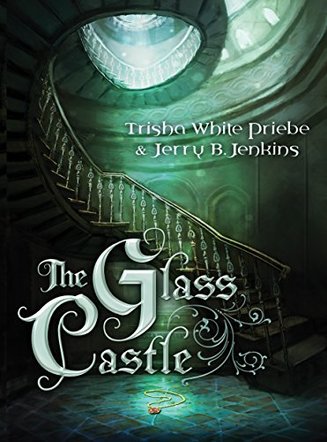 Interview by Brock Eastman Featuring the Glass Castle The Glass Castle is an exciting new series about four kids who take control of an underground network of kidnapped children and work diligently to reunite these kids with their parents. The Glass Castle starts off our series with all the intrigue and adventure one would hope for. Brock: Thanks, Trisha and Jerry, for giving us an inside look on your new release The Glass Castle. Trisha and Jerry: Thanks for taking interest in the book! Brock: First, why did you choose to write a middle-grade adventure novel? Trisha: I grew up in the home of two high school teachers who maintained the policy that before I could read a book from the library, they either had to be familiar with the author or have read the book. I would spend hours in our tiny local library perfecting my stack of paperbacks, only to return most of them to the shelves before checking out because they didn’t meet the requirements. When I was in sixth grade I decided I wanted to write novels someday that would be parent-trusted and kid-approved. Now that I think about it, it sounds like a decent cereal ad. Also, kids write the best fan letters imaginable. Who wouldn’t want to write for kids? Jerry: I was honored when Trisha asked me to come alongside. I have grandchildren the age of the readership, and Trisha has been a great assistant and writing student. Brock: As a parent I know how important it is to find good media safe for my kids. In five sentences, tell us about The Glass Castle? Trisha and Jerry: The king is growing old and is concerned about who will replace him. His new wife wants to produce an heir to the throne, but the problem is, thirteen years ago, the king’s first wife gave birth to a son, and no one knows for sure what happened to him. The solution is simple: dispose of all the thirteen-year-olds in the kingdom. Avery, Kate, Tuck, and Kendrick take charge of an underground network of sequestered teens. The secrets they uncover—specifically the identity of one amongst them—could blow the kingdom apart. Brock: Can you give us a unique trait of each of the characters, not revealed in the book? Trisha and Jerry: Avery is lonely. Tuck is restless. Kate is accountable. Kendrick is terrified. Brock: What do you hope readers will take away from this story? Trisha and Jerry: Kids are capable of doing extraordinary good long before they reach adulthood. Adults don’t give kids enough credit, and kids need to believe they are able to make an eternal impact. Brock: Can we expect more titles in this series, and if so can you give us a clue to what each will be about? Trisha and Jerry: Yes! Book two is underway. The Ruby Moon opens as preparations begin for the upcoming Olympiads. Dignitaries are coming. Athletes are training. In a moment of goodwill, the king announces that all members of the kingdom—adults and children alike—will be allowed to attend the Olympiads freely without discrimination. Lucky break or royal trap? Everyone knows the queen is still on the hunt for the king’s rightful heir, and now children are disappearing from their place of hiding. When Avery learns that a runner is needed for an important race, she steps up. If she wins, she will be granted an audience with the king. If she loses, she will face a trip to the gallows. Much is at stake while the kingdom enjoys the greatest games on earth. Brock: What are some of the challenges faced by authors collaborating on a project? Trisha: Hands down, the biggest challenge for me was preparing to send my chapters to a ridiculously talented and prolific writer and then bracing myself for his precise (albeit sometimes sarcastic) replies. Writing with Jerry has been the privilege and education of a lifetime. Also, he’d probably like to re-write this paragraph. Jerry: Surely Trisha means sarcastic in the way one teases a younger sister. The idea, the story, the writing, the creation were all hers. I really served as the initial substantive editor. Brock: What was the process for the two of you to write this series? Trisha: We sent a few million e-mails back and forth. I wrote the rough draft, he fixed draft two, I filled in the gaps (and answered his witty comments in the margins) on draft three, and then we sent it to the publisher. Jerry: As I say, she was the creator, I was the reactor. Brock: Trisha, share with us how your got involved with Jerry? Trisha: I’ve had the incredible privilege of learning from Jerry about writing for many years. I first studied writing by reading his books, and then I graduated to attending his conferences, and eventually I worked as one of his assistants. In January, when he opened The Jerry Jenkins Writers Guild, I was one of the first to sign up. Brock: Thanks again for answering some questions and pulling back the cover on The Glass Castle. Trisha and Jerry: Thank you for the invitation! The book continues to do well, and we are grateful for every reader who takes the time to enjoy the story. 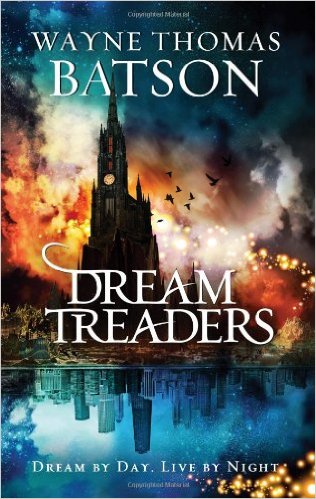 Interview by Brock Eastman Featuring Dreamtreaders, Book One I recall the first time I saw a Wayne Thomas Batson book, I was in a Borders (I miss those stores and their apple cider) in Peoria, Illinois. There on a table in the teen section sat Isle of Swords, I couldn’t help but pick it up and read the back cover. At the time I had just finished college, and hadn’t yet been immersed in the world of publishing. Still I was drawn in by the story and quickly made the purchase. Well I’m proud to say that 7 years later and almost as many books, Batson is still delivering exciting fiction. Without another word, check out my interview with him about his new series. Brock: How did you come up with the idea for Dreamtreaders? Wayne: I found an article online about the science of dreams. It blew me away. I mean, dreams have always been a curiosity. Sometimes they leave us with such a feeling of “I’ve been somewhere new” or “That was so real.” But to discover that there is actually a field of science devoted to dreaming, that was news to me. After a little more research, I realized that dreams may be worth exploring in fiction. Brock: That sounds cool. I know I’ve woken up in the middle night, thinking wow that was just weird. Tell us about the main characters? Wayne: Archer Keaton has the same issues as any other high school freshman: fitting in, standing out, bullies, crushes, etc. But he’s got one additional issue: he’s a Dreamtreader, one of three people chosen each generation to protect humanity in the realm of dreams. Rigby Thames is another freshman, but he’s arrived halfway through the school year and carrying a suitcase of mysteries, including a Mad Uncle who might have been guilty of murder. Kara Windchil is a young lady with plans. Also just a freshman, Kara knows what she wants in life and how she’s going to get there. She’s always seen something special in Archer, but when Rigby arrives, she becomes distracted. Her ambitions change and a secret hobby threatens to lead her into uncharted territories. Honestly, the plot of the story came first. But once I had the general storyline, all these people leaped into my mind to carry out the story. Brock: If I had a nickel for every character that came out of the woodwork during my writing. It’s amazing how characters come to life. In three sentences what is this book about? Wayne: What if Dreams were much more than we ever imagined? What if a threat loomed within the realm of dreams, a threat to everything and everyone we hold dear? And finally, what would happen if people gained the power to control their dreams? Brock: Intriguing! What is the biblical background or basis for the series? Wayne: Dreams play a pretty significant role in the Bible. Just do a search, and you’ll see that some very important events occurred due to dreams. So, the general topic (dreaming) is of Biblical importance. But as the story developed, a new theme began to dominate: the idea of having anchors of truth. When people have God and the Bible as their anchors, they can withstand any storm. But when we lose sight of those anchors, we invite disaster. Brock: That’s so true. How many books are planned for this series? Wayne: Three books. Book 1 will be out May 6th. Book 2, later in the year. Brock: That sounds like an aggressive schedule, but your fans and I thank you! Did you outline the entire series, or do you write as you go and let the characters take control of the story? Wayne: I outlined all three books. I need the structure, and having the major plot points worked out ahead of time reduces the number of rewrites I have to do. But my outlines aren’t carved in stone. There’s enough flexibility in them that, if an epic idea shows up later, I can always change the outline. And keep in mind, the characters really don’t take control of the story. Even in seat-of-the-pants writing, the author is still in control. But no matter how you write, you want your characters to have real personalities and make decisions that are true to their identity and situation. Brock: Any certain research required for the book, or is it all straight from your imagination? Wayne: I had to do a bit of research on the fields of Sleep Science, Sleep Physiology, and Lucid Dreaming. This wasn’t too taxing, however, because it’s all very cool stuff. Brock: What do you hope kids take away from the series? Wayne: Back to the “Anchor” theme. No generation in the history of the world has ever seen its moral compass destroyed then this generation’s has been. Politics, news media, entertainment, music, social media, peers, and even ill-informed parents are sending mixed messages (at best) or false messages to our children. And we dress up those messages with lacey labels like “tolerance” or “fairness” or even “loving,” but it’s really societal poison. If kids don’t have anchors, the solid truths they will stand on no matter what, then they will get washed out to sea and drown in sin. Brock: Is it difficult to be accurate to Biblical perspective/facts when writing fiction fantasy? Wayne: It’s not difficult to write fantasy fiction from a Biblical perspective. Not hard at all. What’s difficult is having to break through walls of “well intentioned” Christians who object to just about anything on the ground that it’s not Biblical because they wouldn’t do it that way. Drives me crazy how some Christians go after other Christians—why? Just because they are uncomfortable with the means by which the Gospel of Jesus is being spread. Can’t Heavy Metal Music spread the Gospel? Is God so powerless that He cannot touch a child’s heart through a story with unicorns or wizards? The apostle Paul would want to slam his head against a wall if he saw the picky attitudes of some Christians today. He was the one who immersed himself in a variety of cultures just so that, by any means, he might save a few. There is freedom in Christ, remember? And that freedom extends to creative expression. Brock: What are some of the strongest influences on your writing? Wayne: I’m an author’s mutt. I mean, I’ve read so many authors in so many genres that I really have no idea whose style I most emulate. I suppose Tolkien’s sense of the grand adventure is something I really want to capture. But I like the pacing of modern authors better. And I like to include a lot of poetic technique in my writing. In poetry, one thing you learn very quick is not to waste words. That’s really handy for writing novels too. Brock: How do you write? What’s a normal writing day like for you? Wayne: There’s no such thing as a normal writing day for me. I’m a full time English teacher at a public middle school in Maryland. I have four teenaged kids, a wonderful wife, and a handful of very close friends. But, as a result of these blessings, the one thing I do not and cannot possibly have is a regular time to write. It just isn’t there. Therefore, I write whenever I can. An hour here, two hours there, fifteen minutes too. It all counts. Brock: Wayne thanks so much for the interview. And I totally understand the fifteen minutes here, an hour there. Wayne: One last thing for readers to remember: Anchor first. Anchor deep. 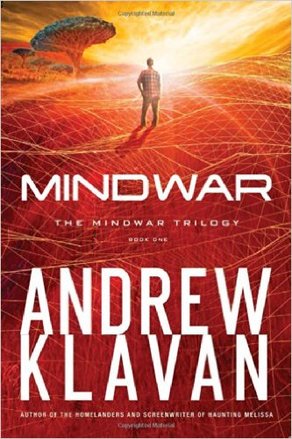 Andrew Klavan is quickly becoming a household name for many Christian fiction fans, including me. With books for adults and young adults as well as credits for major blockbuster movies, you’ve probably watched or read something he’s had his hand in. It’s my pleasure to share a look at his latest YA trilogy, MindWar. And if the title isn’t enough to convince you to add the book to your wishlist, I’m sure the following interview will. Brock: How did you come up with the idea for the MindWar Trilogy? Andrew: I'm a gamer. I've always loved games and puzzles and when video games came along I was swept away. I played Space Invaders so much I developed a swollen wrist! And as the games became more sophisticated, they became so incredibly immersive, it was like actually being in space or in a haunted house or underground. So I just began to wonder: what if the border between life and games became permeable, what if you could pass from one into the other and back again? I guess that was the start of the MindWar idea. Brock: I too was very into video games, defeating Dr. Robotnik (Sonic the Hedgehog) became a daily goal for me. And in college I got into a Navy Seal game called SOCOM. You could actually talk to your team mates via headsets, which brought the game that much more to life. Tell us about the main characters in MindWar? Andrew: The main character is Rick Dial, a guy who feels he has lost everything that matters to him. He was the quarterback on his high school football team, a real athlete-hero type. Then his car got broadsided by a panel truck and his legs were shattered. He's on crutches now. And on top of this, his father has disappeared and may even have run off with another woman. So Rick has lost his faith: in life, in God, in himself, in everything. But when he's sent as an avatar into the MindWar Realm, he has a chance to recover the hero in himself. It's just a question of whether he can find it. Brock: Wow, that sounds pretty awesome. In three sentences what will the MindWar trilogy deliver to the reader? Andrew: Action, first of all. Because the stories take place both in real life and in the game, there is both the sort of action you get in fantasy novels — sword fights and dragon battles and so on — but also normal thriller action with guns and bad guys and chases and so on. And, of course, you're going to follow the evolution of this young man Rick as he goes deeper and deeper into this beautiful but essentially evil place. Brock: Andrew, can you share how you have intertwined biblical themes into the series? Andrew: You know how it says in the King James Genesis that the imagination of man's heart is evil... and then Jesus tells us in Matthew 5 that it's not just the crimes we commit that condemn us - the adultery or murder or whatever - it's the crimes we imagine — the lust and anger in our hearts. This is a story about a young man who has to confront both: the perils of the inner world and the outer one. The MindWar is essentially the war for the imagination. You have to win that before you can win any other. Brock: And it seems this is a battle parents are trying to win every day. I hope they’ll be encouraged by Rick’s story. What sort of research did you have to undertake for the book, or was it all straight from your imagination? Andrew: Well, I could try to keep a straight face while I told you how many video games I had to play before I could really get the hang of the thing! But the truth is I actually did have to do quite a lot of background research. For one thing, the computer world of MindWar is actually a weapon to use in the real world. The villain Kurodar is trying to imagine acts of terrorism into being. So, without giving too much away, I can say that I had to find out how some of those terrorist acts would be committed. And I really did need to get some sense of how video games work, and how computers can be hacked and polluted. Brock: You may very well be on several government watchlists now from your research. And I guess now I could be listed as an accomplice. Oh man, who knew interviewing could be so risky. Can you give us a hint at the second and third book? Andrew: Not too much, but I'll just say this: things get very weird in the second two books because entering the MindWar has some very gnarly effects on the brain and Rick has to start to deal with that. And there's a kind of love story you maybe haven't seen before. And some cool twists and turns. And now I'll shut up before I give something away. Brock: Thanks for pretty much nothing! But we respect that. We want to be surprised by the plot turns and twists. You have many great releases already out and I am sure many more planned, are you a full time writer? Andrew: More than full time! I'm usually at my desk by 7:30 am and what with phone calls and required reading and so forth, I don't shut up shop until ten at night. I used to take weekends off, but that's so twentieth century! I'm just glad you have to turn your cell phone off in church! Brock: You just gave me a very sad chuckle of self-realization. Taking weekends off is so twentieth century has to be one of the truest statements I’ve read in a long time. Then I think about Downton Abbey and how they waited days, weeks, for information. We certainly have increased in ‘productivity’ if that’s what we can call it. Speaking of productivity and efficiency, how long does it usually take you to write a single book in the series? Andrew: About nine months, although longer for the first one because that's where you're developing the characters. Brock: What were some of the challenges you faced when writing MindWar? Andrew: Keeping the plot going strong in two realms: in MindWar and reality, and making the timing work in both. I had to make it plausible that there could be, say, a car chase in one chapter, and a fight with a gigantic fantasy monster in the next. Brock: I can only imagine how hard that would be to keep your outline straight. What do you want readers to take away from MindWar? Andrew: You know, I believe in stories as experiences. I'm not trying to send a message exactly, I just want readers to live through what Rick lives through: the search for his lost hero-self, the search for who, in the end, he really is. I hope that experience will give you something that you can use in your own life, but I think you've got to figure out for yourself what exactly that is. Brock: In what ways does your faith impact how you approach writing? Andrew: So many ways. Before I knew God, the problem for me and for my characters was always the problem of Pontius Pilate: "What is truth?" My stories were always about lost and endangered people trying to determine what reality is so they could act. Now though, the problems my characters face are more elemental, more immediate: How do I do what's right? How do I keep my courage in the face of suffering? How do I keep my faith when everything goes wrong? In my humble opinion, my stories have become a lot stronger because their issues are more grounded. Brock: You can’t lose when you’re writing for Him and with Him. He’s the creator and when He’s the inspiration and the foundation for our writing it has to get better! So speaking of a creator, what is your favorite color? Andrew: I read somewhere that little boys like bright colors but when they grow up they like colors that are more subdued. So I'll say bright red. Brock: Staying on the personal side of things. What’s your favorite holiday memory? Andrew: Oh, man, I've had some great, great holidays. Last year, I went to Israel for the first time and walked along the Sea of Galilee. And once, on safari in Africa, I was standing up through the roof port in one of those safari busses and two separate prides of lions walked criss-cross around the bus simultaneously: nothing but lions everywhere. It was like some kind of wild dream. In Hawaii, I once walked over the hardened lava of an erupting volcano, hopping over the burning parts... I could answer this question forever. Brock: Those are some pretty awesome experiences to have had. Do you have a favorite pasta dish? Andrew: Now you're getting really personal. Pumpkin ravioli. Brock: Sounds quite tasty, and not what I might have expected. Do you listen to music while you write? If so what are some examples? Andrew: Never. It's the one thing that disturbs me. When I was a radio news writer, I used to write on two minute deadlines with three televisions blaring, teletypes clattering and the radio playing... so I'm not easily distracted. But I love music and it messes with my rhythms so I have to leave it alone. Brock: Amazing how our brains can be trained to operate in different ways based on our tasts and likes. And lastly, but often the most fun thing to share. Do you have a favorite Bible verse? Andrew: Several, sure. But the one that always leaps to mind is: "Peace I leave with you; my peace I give to you. Not as the world gives do I give to you. Let not your hearts be troubled, neither let them be afraid." That's smoking stuff. It never fails to move me. Brock: Andrew thanks for giving us a look at your latest release as well as a little more into who you are. We’ll look forward to checking with you when the next book releases. Andrew Klavan is a best-selling, award-winning thriller novelist whose books have been made into major motion pictures. He broke into the YA scene with the bestselling Homelanders series, starting with The Last Thing I Remember. He is also a screenwriter and scripted the innovative movie-in-an-app Haunting Melissa. Twitter: @andrewklavan Facebook: aklavan |
Follow meArchives
May 2024
Categories
All
|
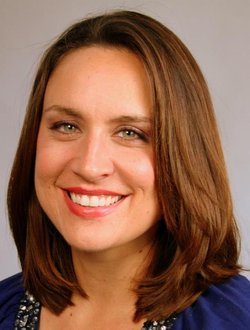
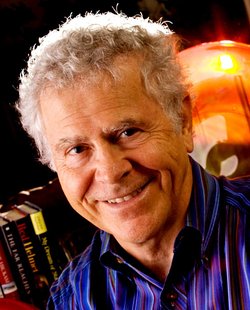
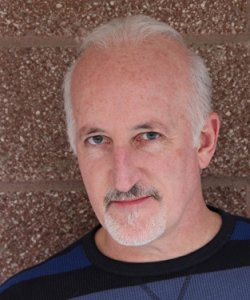
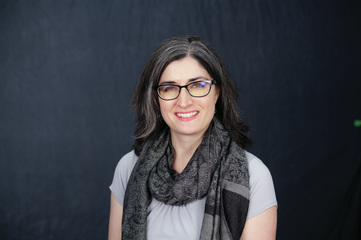
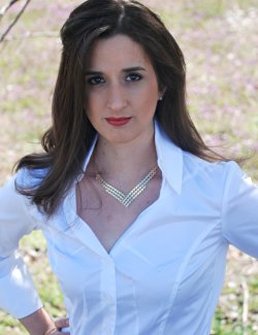
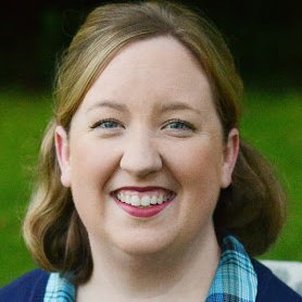
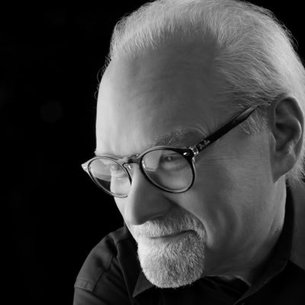
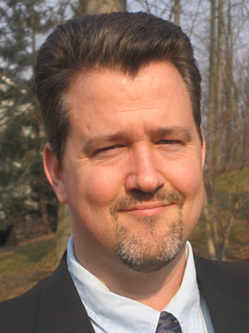
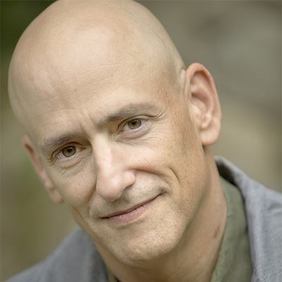
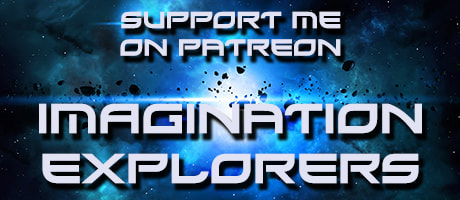
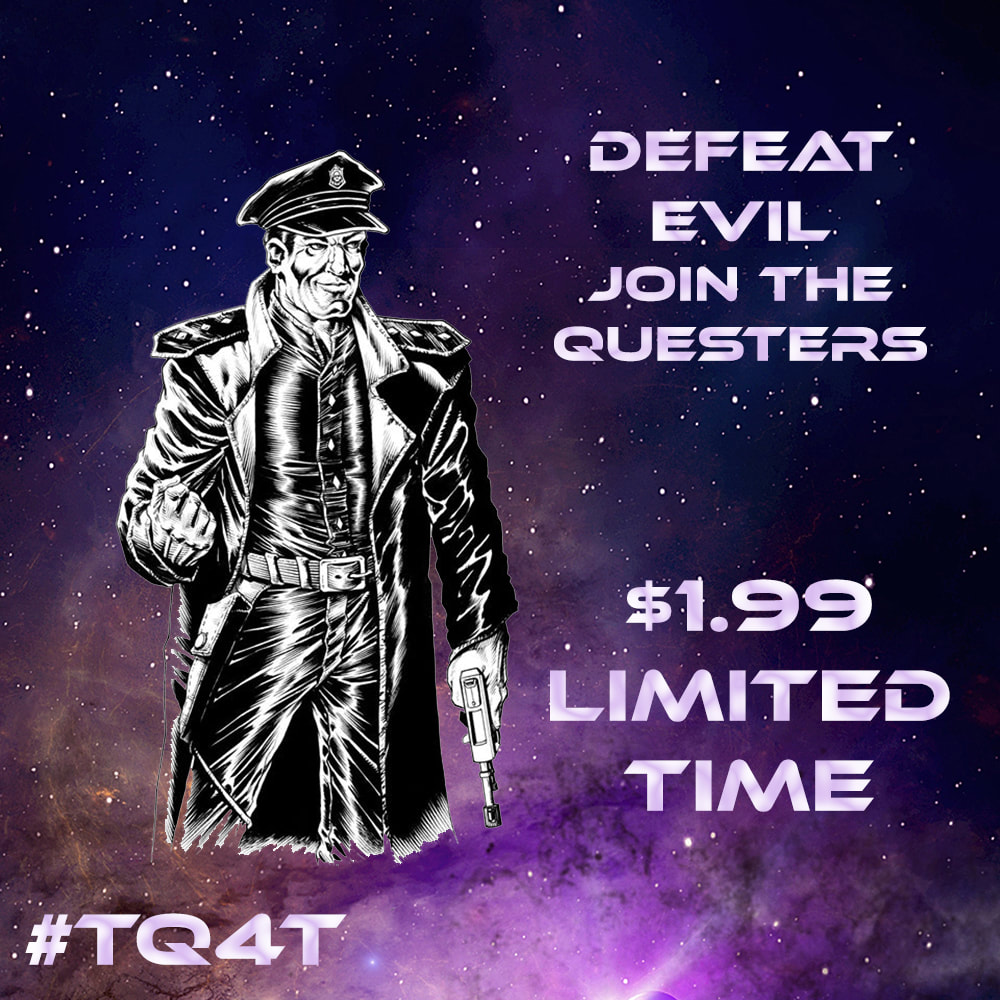
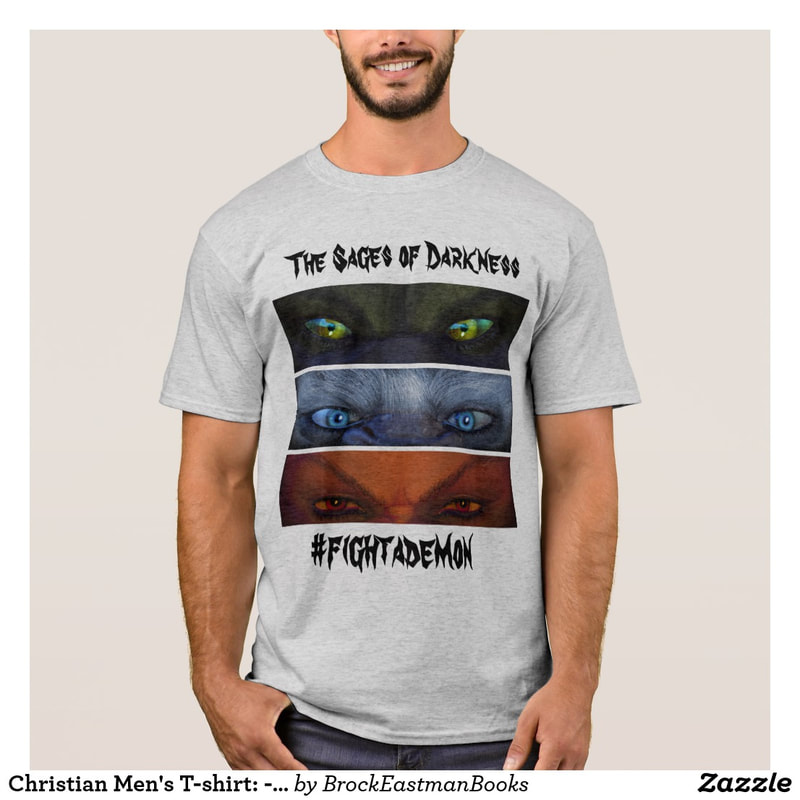

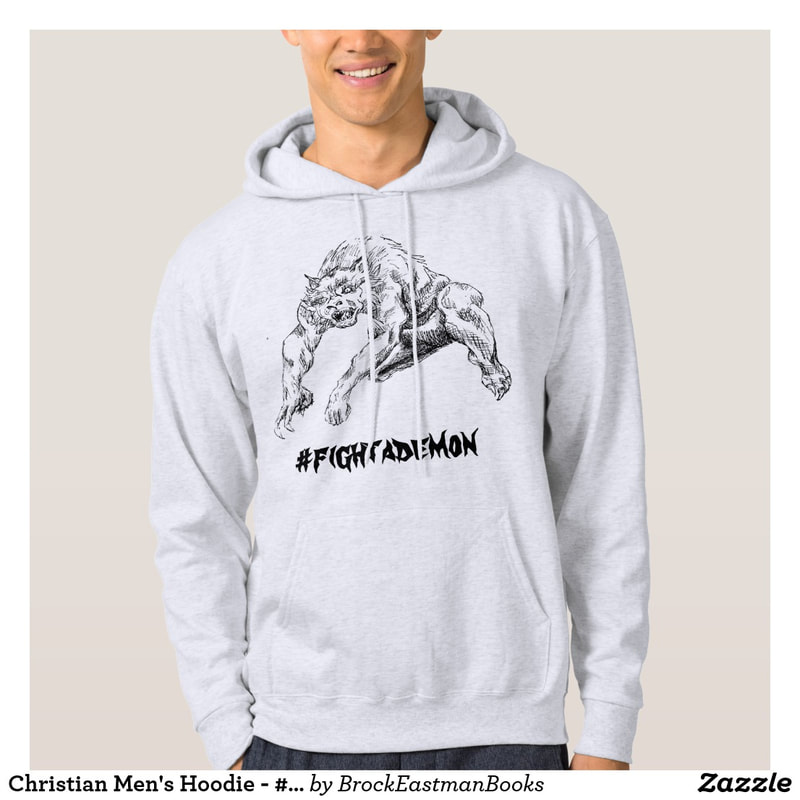

 RSS Feed
RSS Feed